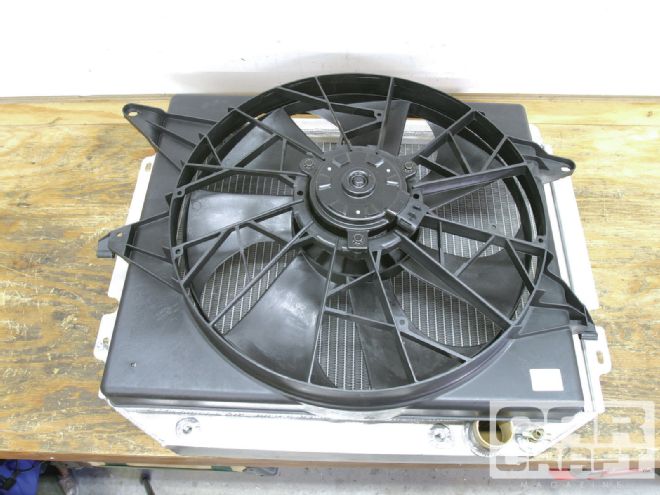
It used to be that electric radiator fans were low-performance add-ons that maybe pulled a couple of extra degrees of heat out of overheated muscle cars. But today, they are an integrated part of all but the most heavy-duty vehicles.
There are hundreds of electric radiator fans available in the boneyard in a variety of sizes, many of which are dictated by space considerations. If fan depth isn’t critical, the consensus among confirmed junkyard builders is the Lincoln Mark VIII 18-inch fan or Ford’s slightly smaller, 17-inch Taurus LS/’95 Thunderbird/’95 Cougar 17-inch fan are the best. These fans move a serious amount of air, which is why they are so popular with car builders. The hero is obviously the 18-inch, big-dog Lincoln fan, which is still relatively easy to find in the boneyards. If you have trouble finding a used one for roughly $30, consider a brand-new one from Rock Auto at only $72 plus shipping. Most of these electric radiator fans operate in two speed modes—high or low—depending on coolant temperature. Some however, are only capable of a single speed. A three-pin connector indicates a two-speed version. The electric fans with only two wires in the connector are the less desirable single-speed units.
Wiring is the area in which some car crafters may need some help. Rather than simply toggling these electric fans on and off in high-speed mode, there is a simple and easy way to wire the fan to operate it in both modes, running the high speed only when necessary. This is especially important when you consider that the fan’s high-speed side demands every bit of the 40 to 42 amps to keep it spinning. This places significant load on the charging system. Low-speed operation pulls a more conservative 28 amps.
Both the Lincoln and T-bird/Cougar electric radiator fans come with an integrated fan shroud, which is another reason they offer such great cooling potential. Because each vehicle application is different and car crafters are good at mounting the electric fans, we focused our attention on the critical aspect of wiring and establishing an efficient switching mechanism. While you can just hook up a simple toggle switch, that’s troglodyte tech. We can do so much better. Both Delta Current Control and Spal make excellent pulse-width-modulated (PWM) fan controllers that can ramp fan speed much like factory computer controllers. These controllers are a great way to emulate new-car cooling technology in your muscle car, and the controllers are fairly reasonable. DC Control sells a basic box for around $150, or you can get a Spal PWM controller for less than $140 from The Fan Man.
While searching for controllers, we ran across Dave Chapman’s Hollister Road Co., which offers a very nice three-relay fan control system that’s simple and affordable. The best version of this system is the three-relay kit that comes with two temperature sensors. The low-speed sensor triggers the fan at 180 degrees F, while the second sensor engages the high-speed side of the fan at 195 degrees F. All three relays are ganged together for easy mounting.
We can’t emphasize enough the importance of a high-output alternator to supply the amperage necessary to spin this fan. Plan on using a 100-amp output alternator to ensure there’s plenty of power for all your muscle car’s electrical devices. (We covered high-output alternators in the Sept. ’11 installment of Junkyard Builder.) Dig up a good Mark VIII fan, and then you too can chill out.